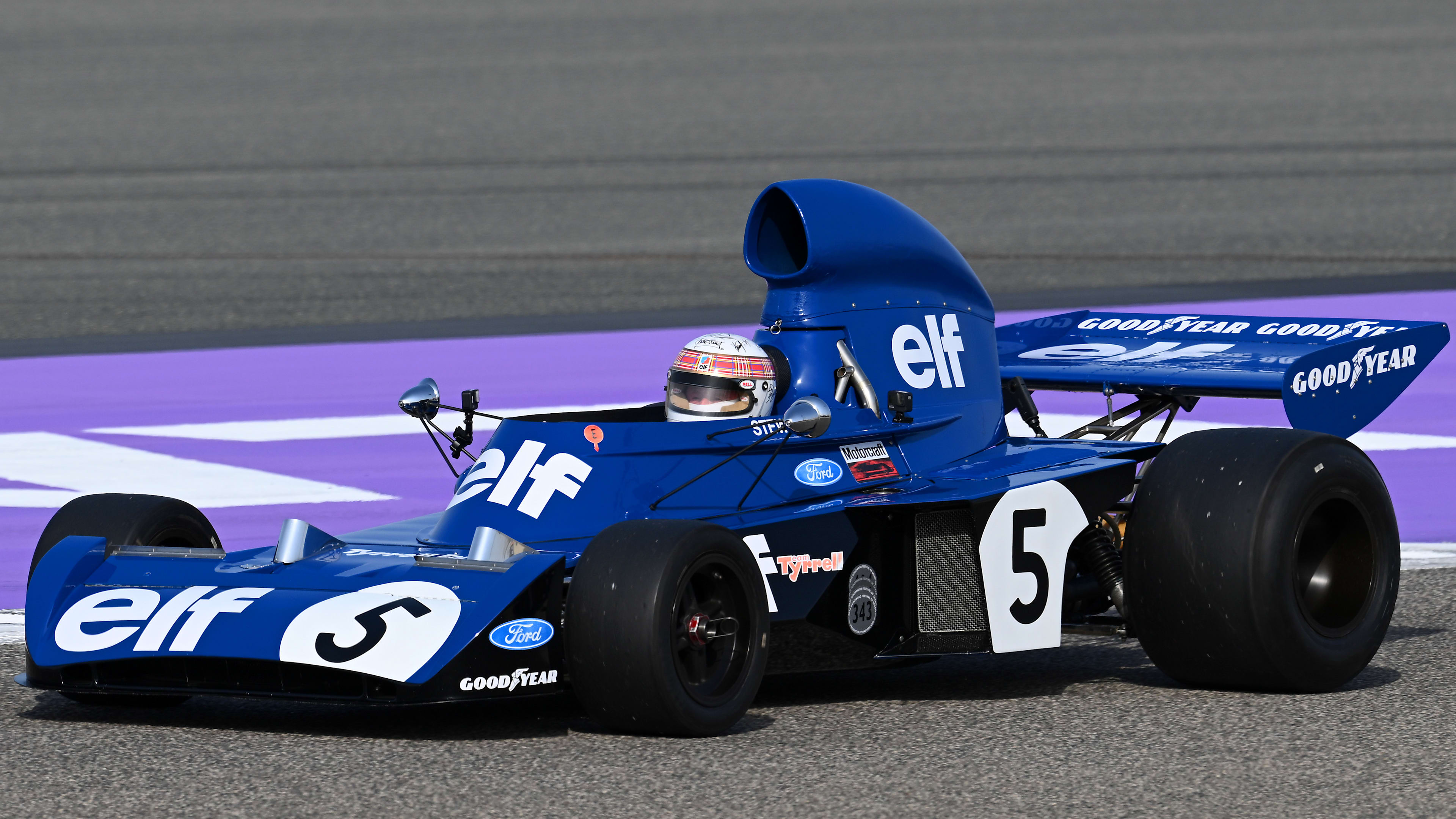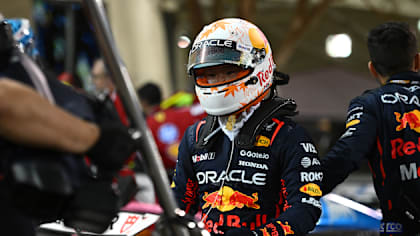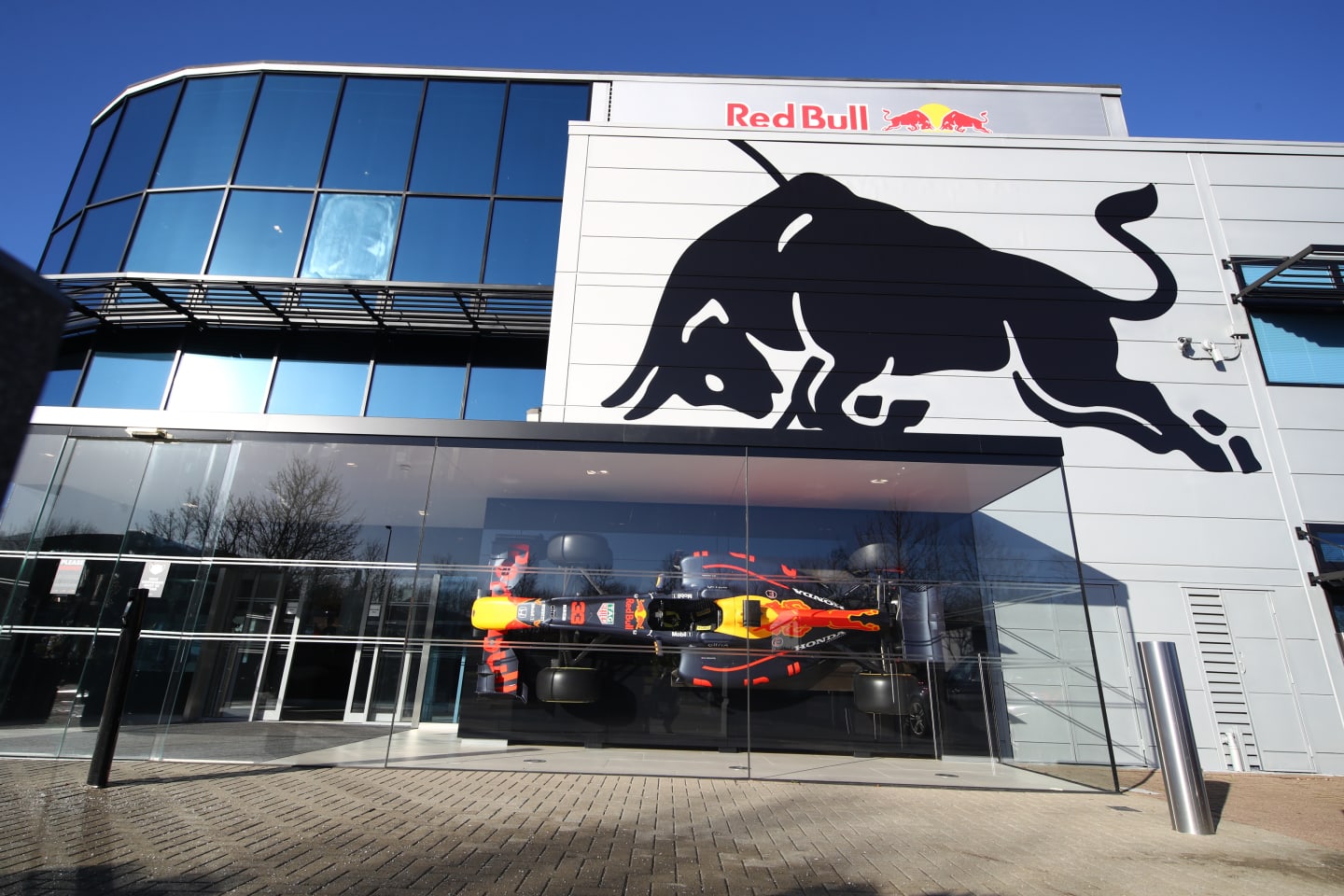
Feature
ANALYSIS: Why Red Bull have decided to go all-in with bold new engine strategy
Share

Red Bull found themselves in a bit of a pickle when Honda decided to call their involvement in Formula 1 quits at the end of 2021. But they have found an innovative solution that makes them masters of their own destiny, and avoids an unwanted reunion with ex-suppliers Renault…
So Honda are leaving, but staying?
Honda’s latest departure from F1 has plenty of similarities to when they closed down their works team operation at the end of 2008, in that once again, it is not a hard departure.
Last time, the Japanese manufacturers came to an arrangement that saw Ross Brawn buy the team, with Honda continuing to fund the operation for a year.
READ MORE: Red Bull agree deal to run Honda engine technology until 2025
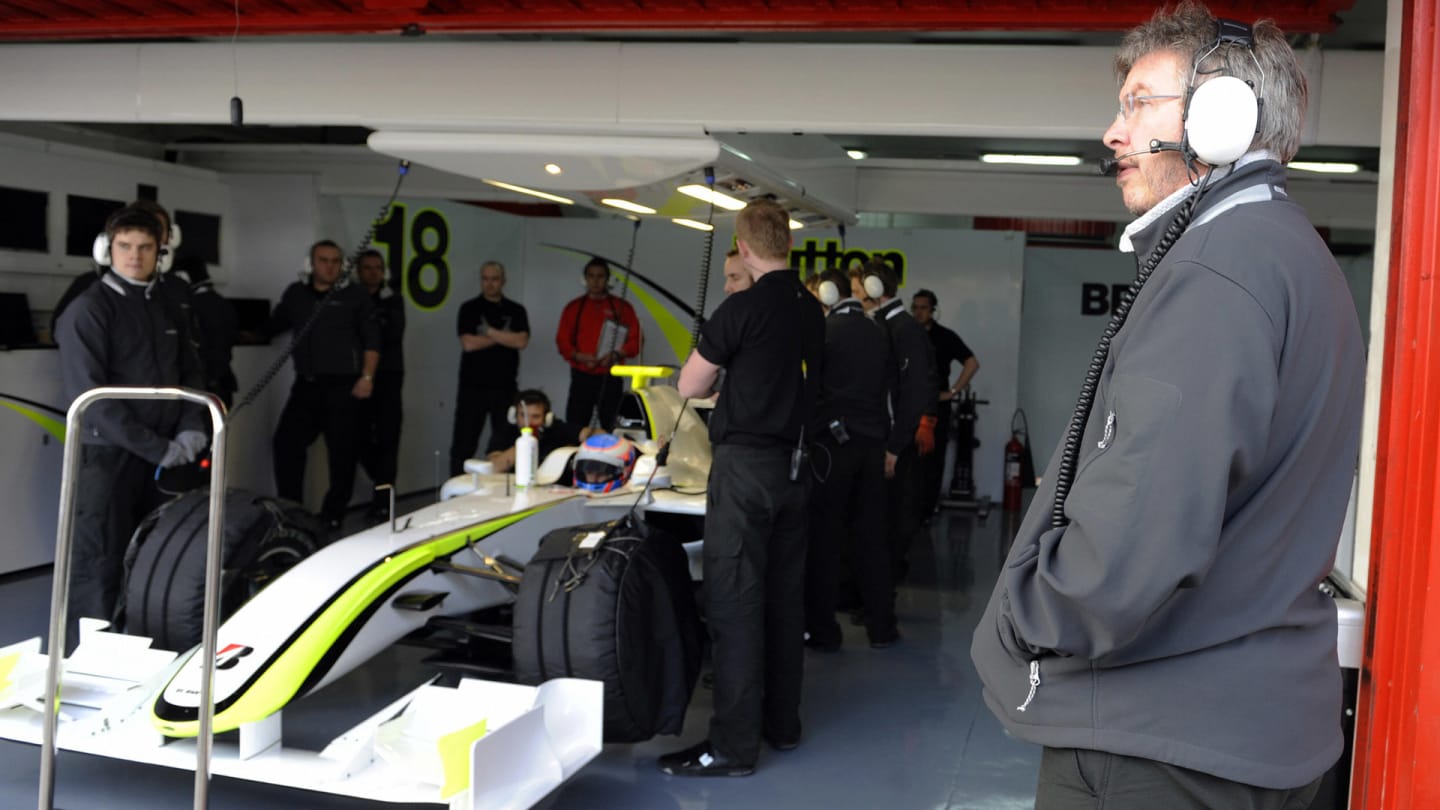
Ross Brawn bought Honda in 2009 and turned them into the championship-winning Brawn GP squad
This time, Honda have agreed to allow Red Bull to use their technology for the next three years, until the next generation of power units are introduced in 2025.
Red Bull will run the project out of a building on their campus in Milton Keynes, under a division known as Red Bull Powertrains Ltd.
Why were Red Bull so keen on this deal?
Red Bull do not want to be a customer outfit, because they believe to win the World Championship, you have to have a works engine supply.
Returning to using Renault power – by virtue of having the fewest customers, the French manufacturer would have been obliged to supply Red Bull and AlphaTauri with units as per the regulations – was not a favourable option, considering how frostily their relationship ended in 2018.
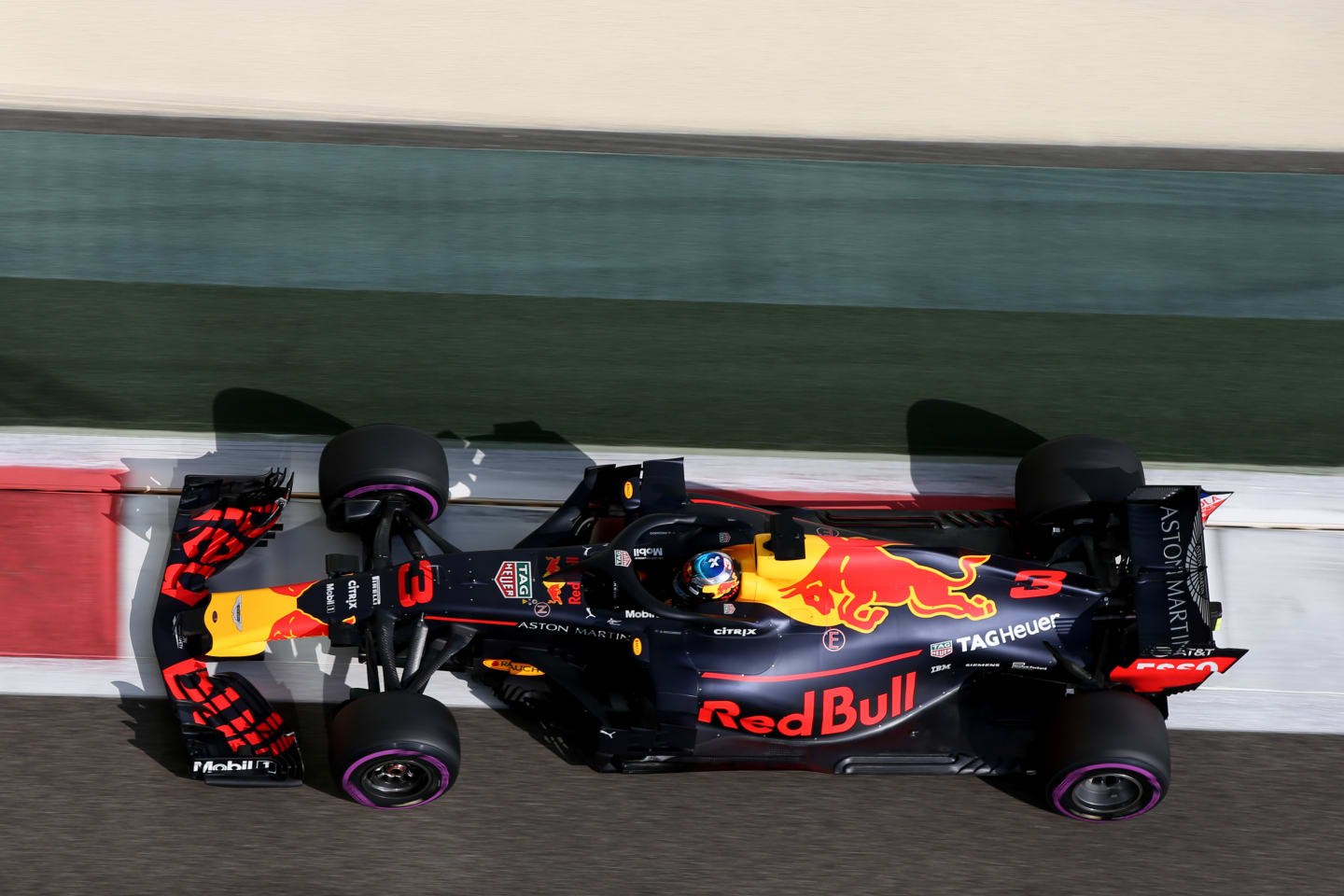
Red Bull used Renault engines from 2007-15, rebranding them as TAG Heuer engines from 2016-18
Horner said “the appetite [for F1], shall we say, would have been much diminished” if they didn’t find a way to take over the Honda project. “Red Bull is almost too grown up to be a customer team,” he added. “We saw that it could be uneasy and of course the aspirations of this team surpass that of some of the current suppliers.
“What we’ve experienced with Honda has been a fantastic partnership and relationship, it’s a shame it comes to a premature end at the end of this year; we’ve had two successful and enjoyable seasons so far, we’re determined to have a competitive and enjoyable final season in Formula 1.
“Red Bull very much takes control of its own future and destiny by this move for the powertrain and the establishment of that company and that commitment. It’s safeguarded the commitment of Red Bull to Formula 1 for the foreseeable future.”
READ MORE: 5 reasons for Red Bull fans to be optimistic about the 2021 season
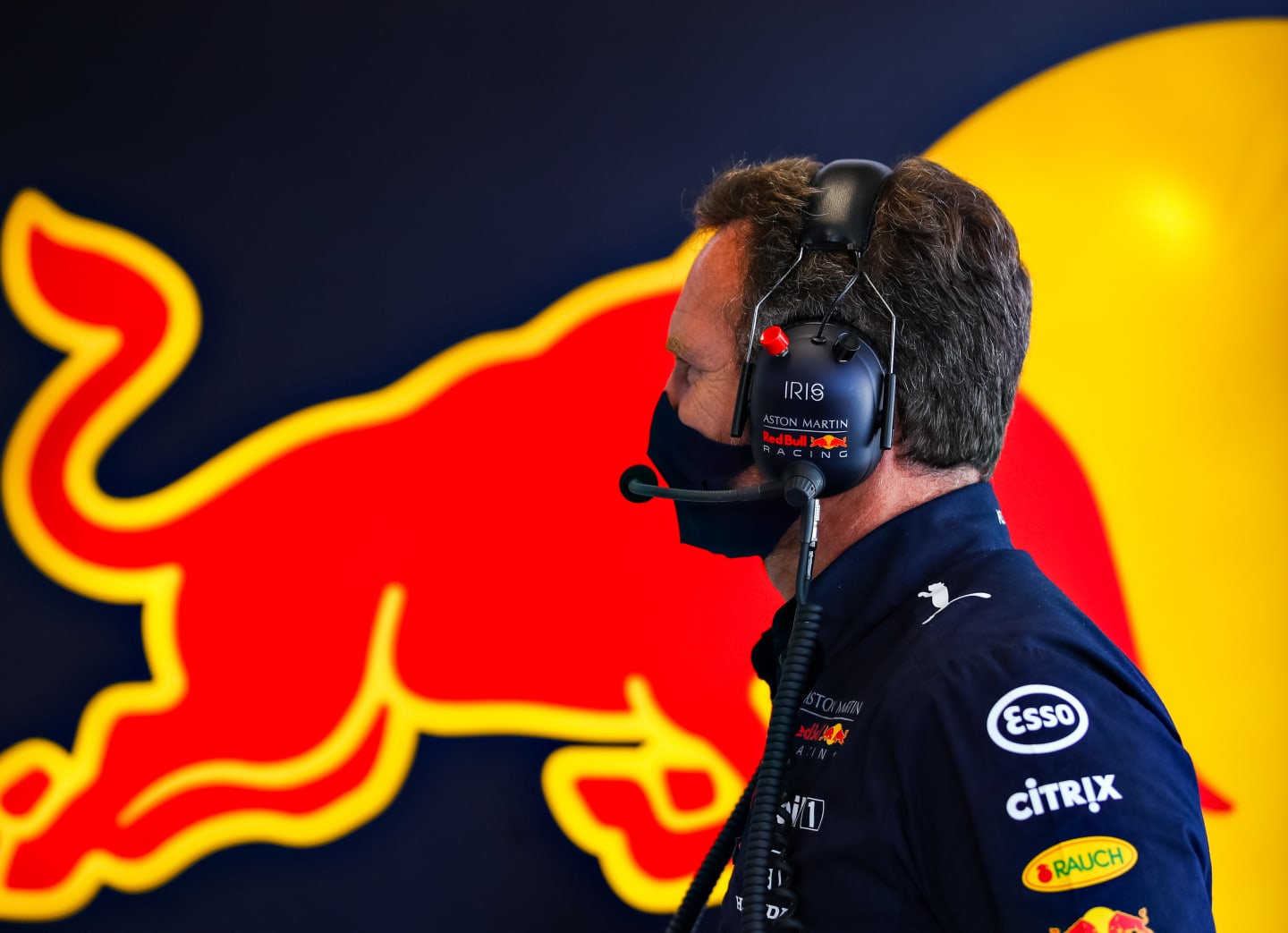
Red Bull's aspirations have morphed them into a full engine constructor, according to team boss Horner
What were the key factors in getting a deal over the line?
Firstly, Red Bull needed Honda to commit to developing the engine for another year, ready for 2022.
With Honda opting to leave F1 when their current agreement expires at the end of this season, their commitment to development ended when they finished upgrading the power unit that would be frozen for the 2021 campaign.
But Honda were keen not to leave Red Bull in the lurch. So they agreed to develop their power unit through this season in the way they would ordinarily have done if preparing for 2022, which means Red Bull and AlphaTauri will have an upgraded engine for next year’s campaign.
“They are continuing the optimisation of the engine,” said Horner. “They brought forward developments that they’d planned for next year already into this year which is an enormous effort, so the main challenge is the optimisation and the development of the E10 fuel.”
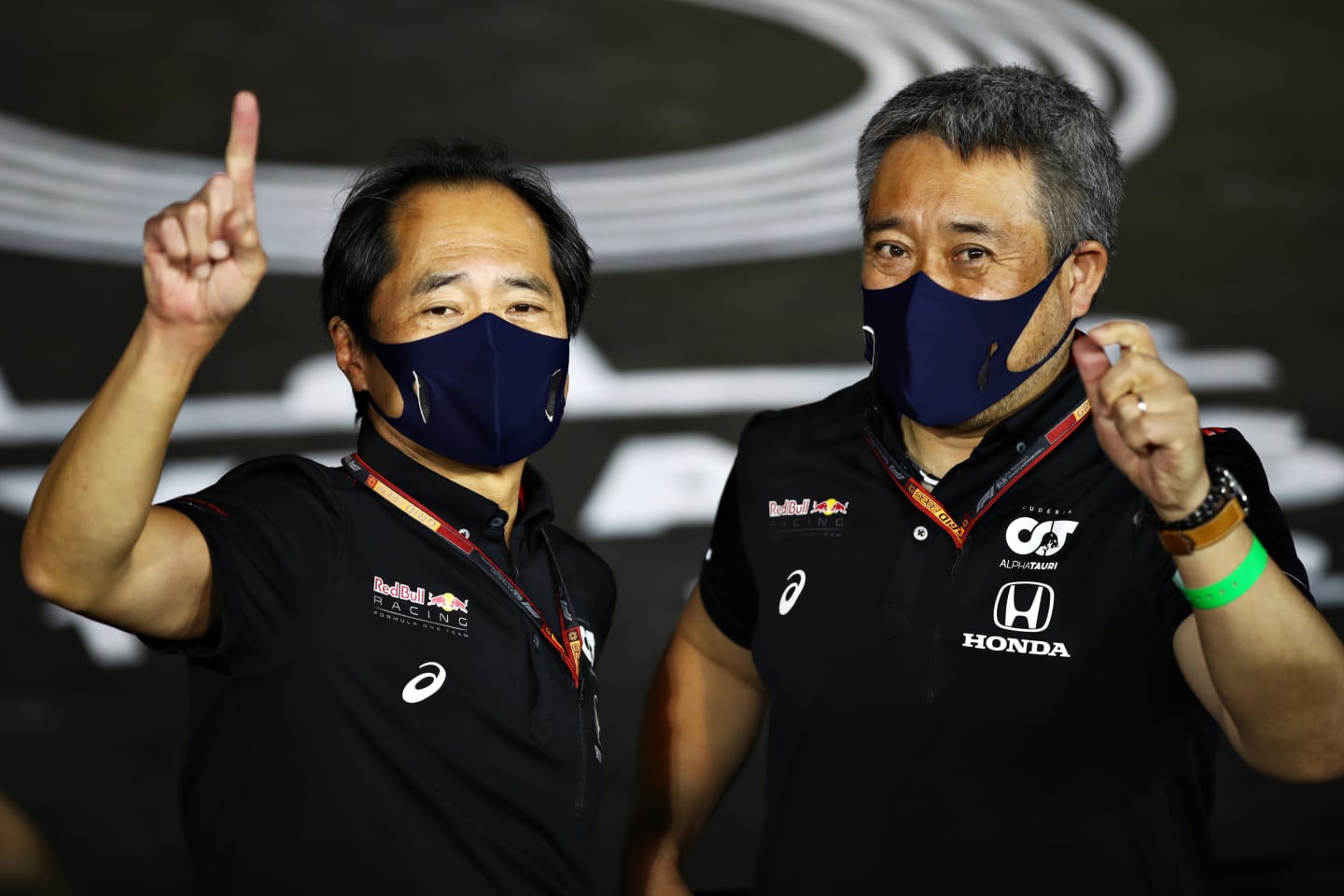
Toyoharu Tanabe and Masashi Yamamoto have reiterated that Honda are prepped for a title challenge in 2021
He added: “They will hand over the engine effectively for the start of the freeze, and they will continue to assist during 2022 with the assembly of engines. I have to say Honda have been tremendously accommodating to enable this to happen and to give us the necessary time to get ourselves geared up.”
Step one, then, was complete. Next Red Bull needed to the rulemakers to bring forward a freeze by a year to 2022 because as it stands, they don’t have the experience to develop an engine themselves and they didn’t want to fall behind each year until 2025 when new a new sustainable engine formula is introduced.
This step was significantly harder, and involved months of talks – but on Thursday last week, it emerged their lobbying had been successful – with engine development frozen ahead of the 2022 campaign.
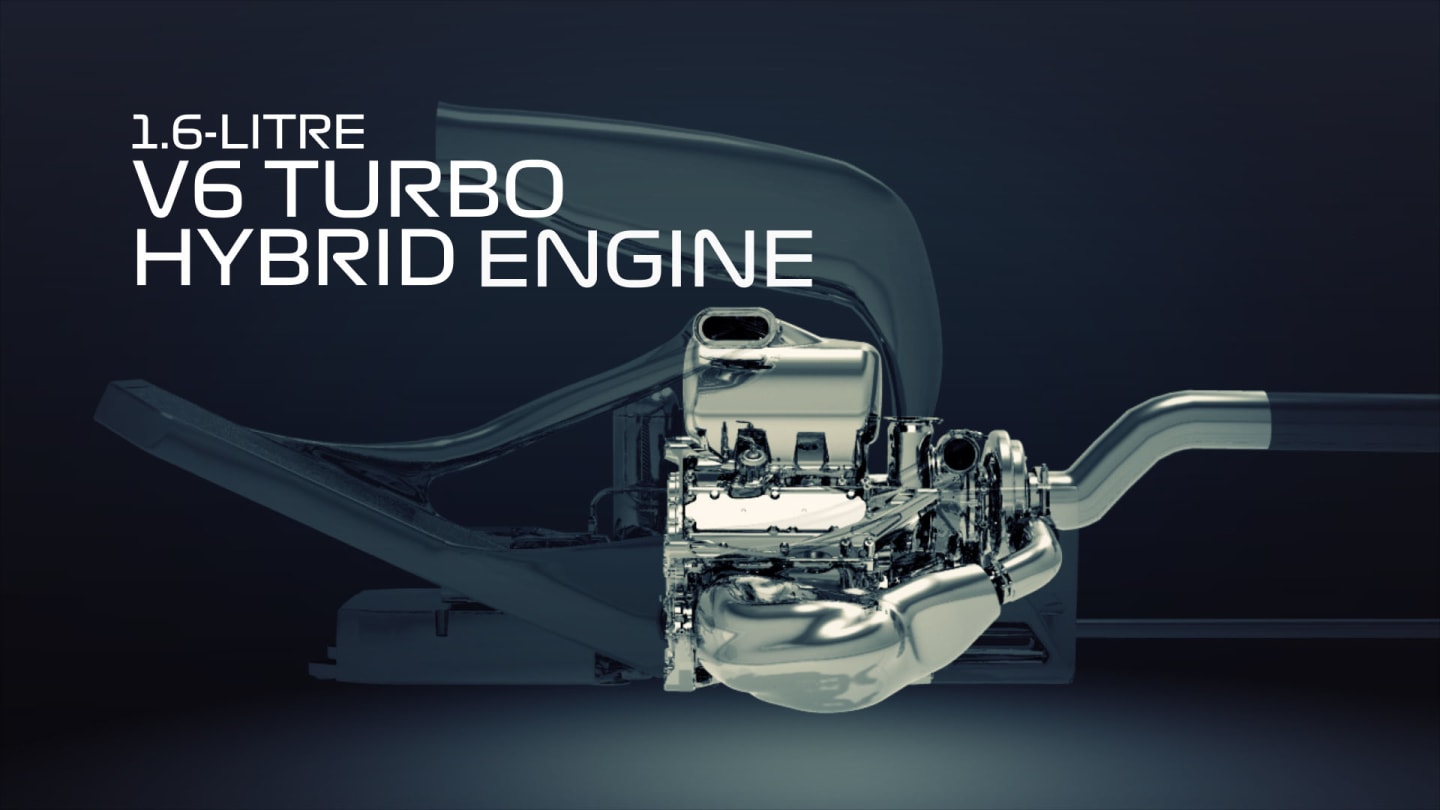
Development on the current engine spec will be frozen from 2022, with more sustainable power units to be implemented from 2025
What will Honda’s involvement be from now on?
Both Honda and Red Bull are committed to keeping as many UK-based Honda staff – the Japanese manufacturer has a facility in Milton Keynes – employed as part of the new project, however the involvement of Honda’s base in Sakura – including staff – will end ahead of 2022.
“We will inherit the vast majority of HRD UK [Honda Research and Development UK], which is the operational side of Honda based in Milton Keynes,” said Horner. “So that gives us a standing start that already all of the people that we already know and interface with we’ll look to take under the new company. Then we are in the process of setting out some of the other roles that will be filled over the next coming weeks and months. But I think the agreement that we’ve achieved with Honda just buys us time to assemble the right group of people.”
READ MORE: Honda chief sets title target for 2021 as Japanese company prepare to bow out of F1
It makes sense for Red Bull to keep Honda staff as they have the experience of the Honda power units, and their know-how will be of particular use if they encounter issues with reliability and installation.
From 2022, the Honda name will disappear and Horner says there are currently no talks over re-branding the engine. “It will be a Red Bull engine,” he said. “As Mercedes is a Mercedes, it will be an incorporated part of the car so it will just be a Red Bull.”
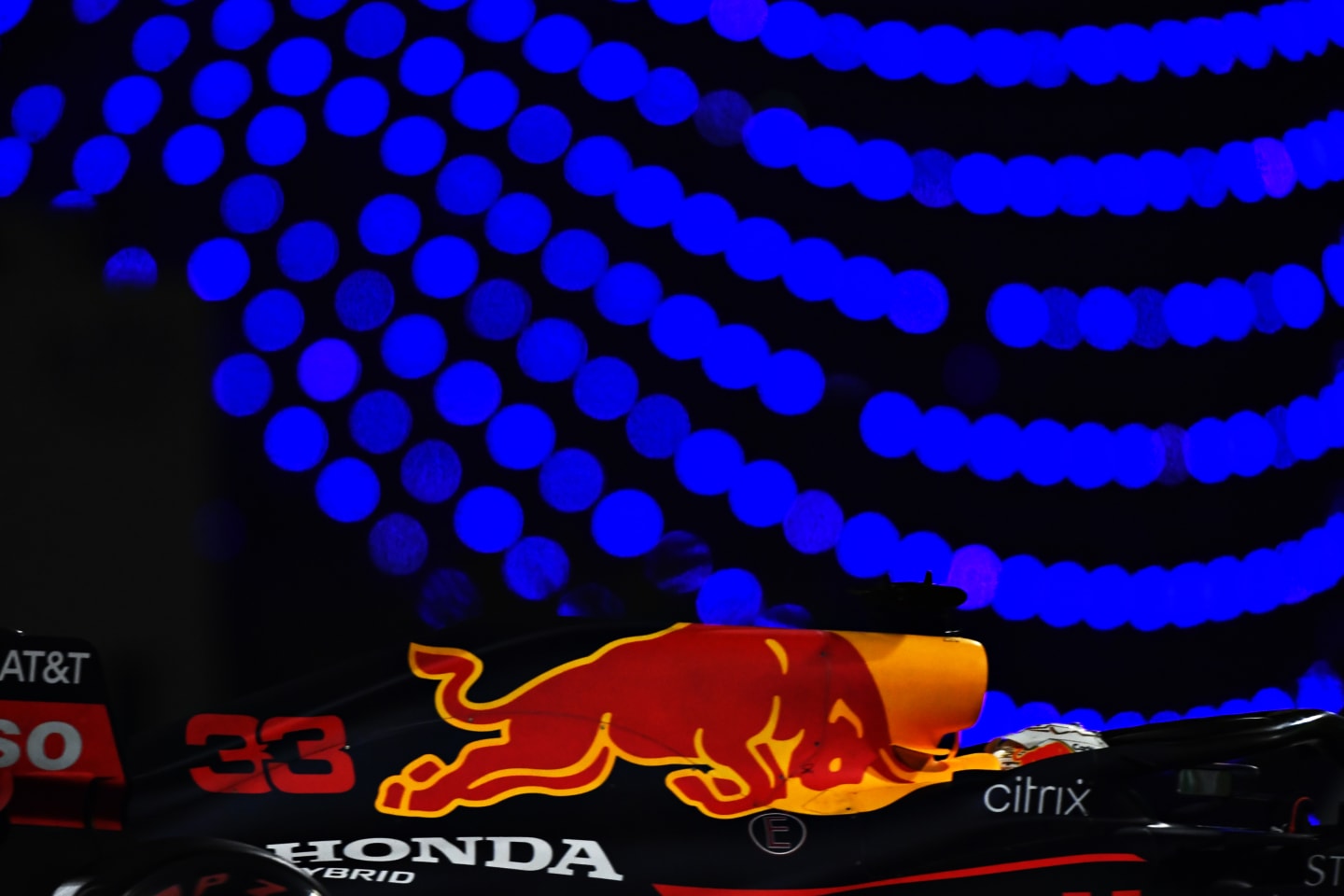
The Honda name will disappear from Red Bull's car in 2022, and they don't plan on rebranding their own engine
What does the future hold?
Red Bull will run this generation of engine, with the plan to then develop and build their own power units in house when the new engine regulations are brought in for 2025 – a massive commitment from the Austrian company.
When owner Dietrich Mateschitz launched his energy drink more than 35 years ago, he might not have believed that his Red Bull brand would go on to launch not one but two Formula 1 teams and now a powertrain company.
READ MORE: Engine freeze for 2022 agreed, with low-cost, sustainable power units set for 2025
It’s a bold decision, and a significant investment, to begin laying the foundations to build their own engines in the future, ideally for 2025. It ultimately demonstrates Red Bull’s commitment to F1 in the long term.
The fact that they aren’t planning on badging it but rather referring to it as a Red Bull engine shows how seriously they are taking this new challenge. It’s a proper long term fix to their problem, not a sticking plaster.
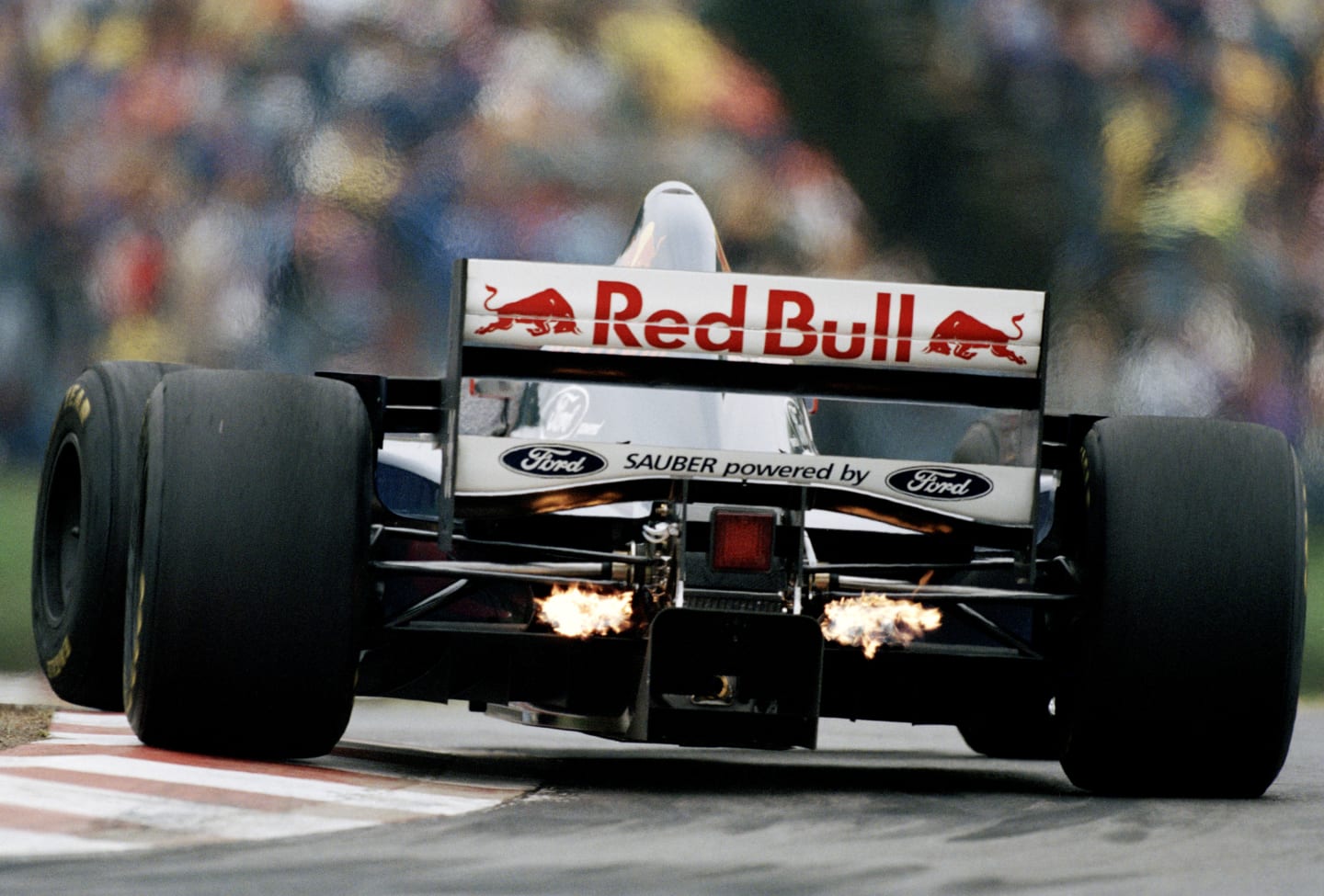
Within three decades, Red Bull will have grown from energy drink sponsors of Sauber to full-on F1 engine manufacturers
“Red Bull have agreed to the funding of this project, which obviously, is a significant commitment to Formula 1,” said Horner. “And Dietrich has demonstrated his appetite to not be afraid of risk. You'd have never thought we could have done what we've managed to achieve over the years with the chassis. The challenge now is to try and replicate that within the power unit.”
As Horner said, Red Bull have shown they can aggressively develop a car across a season – and compete for race wins and the title – but doing so consistently is much harder so taking on an engine project is going to a huge challenge.
But Red Bull are certainly up for a fight. And if they can assemble a strong team of people for their engine project – and gain performance from the benefit of having their chassis and engine project in house like Mercedes, Ferrari and Alpine/Renault – this could be just what they need to become title fighters once again.
YOU MIGHT ALSO LIKE
Feature FACTS AND STATS: McLaren’s first Bahrain win and Red Bull’s first double score of 2025
News ‘Everything went wrong’ – Verstappen rues problems after P6 in Bahrain as he reflects on ‘tough’ situation for Red Bull
News Russell reveals ‘all sorts of failures’ he experienced in tense Bahrain GP as he avoids penalty
News Norris rues ‘messy race’ after P3 finish in Bahrain as he vows to ‘step it up’ at Saudi Arabian GP
